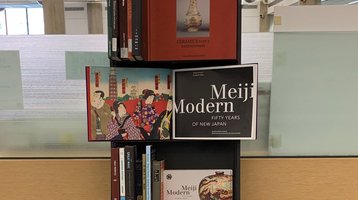UChicago Library experts shape development of new open-source library management system
Experts from the University of Chicago Library have played a vital role in shaping the development of FOLIO, the new open-source library management system that is about to be implemented at the University of Chicago Library. Rachel Rosenberg spoke to Elisabeth Long, Interim Library Director and University Librarian and Associate University Librarian for IT & Digital Scholarship, about the ways UChicago staff have collaborated with colleagues internationally to ensure that the new system will meet the specific needs of University of Chicago faculty, students, and staff while also serving academic libraries around the world.

Q: First of all, what is a library management system?
A: A library management system is the software that allows us to keep track of the millions of items we have, where they are shelved, and which ones are checked out. We use it to acquire new materials, to create catalog records so that they can be found, to lend, borrow, and circulate materials, to make items available through course reserves, and to manage Library accounts. So it has a major impact on our internal operations.
Q: Why did University of Chicago librarians want to use an open-source system instead of licensing one from a vendor, and why did we decide to participate in developing a new one?
A: Open-source solutions are appealing to us philosophically as well as from a market and innovation perspective. The open-source approach to software allows community-oriented development, and it mirrors the open data/open science movements in the belief that making the software available for modification and reuse drives innovation. Our major library functions should not be locked up in proprietary software. This is especially an issue because there has been a serious constriction of the library vendor market over the past couple of decades. We wanted to see more technology options and to avoid vendor lock-in and market domination, especially when so many existing systems are rooted in past practices. We were excited by the innovative nature of the FOLIO project. Since open-source projects are driven by the community, the FOLIO system reflects the many creative ideas of participants from partner institutions around the world. FOLIO is also an unusual open-source project because there are vendors involved--vendors that have invested important resources in the project but have committed to keeping their contributions open source. This helps to mitigate some of the potential risks of using open-source software for an enterprise system.
Q: How would you summarize the range of work that our library staff members took on and the scale of the investment the Library has made in the development of this system?
A: The University of Chicago Library has been involved in the FOLIO project since 2018. Our investment has primarily been in staff time, although we also have made a monetary investment as members of the FOLIO Project. Around 15 Library staff members have been contributing some of their time as subject matter experts, which means they provide functional expertise to help guide feature development and to test releases. We have also had a couple of staff members take on the product owner role, which involves acting as the bridge between the subject matter experts and the FOLIO software developers by documenting and managing feature requests and answering questions. Our own software developers have concentrated on building integrations between FOLIO and local systems, like the robots in Mansueto, rather than contributing to core FOLIO code.
UChicago Library staff members also serve as elected members of several of the governance councils. Kristin Martin, Director of Technical Services, serves on the Product Council, which is responsible for the product vision, strategy, and roadmap. Tod Olson, Interim Head of Integrated Library Systems, serves on the Technical Council, which guides the project’s technical policies and infrastructure.
Q: What was it like to work with colleagues from other universities and even other countries?
A: One of the exciting aspects of the project is that there are members from across the world. This can provide some challenges, like early morning phone calls to accommodate members from many different time zones, but it also means we have the opportunity to learn from a wide variety of different colleagues. We have been able to leverage our partnerships with other large research libraries in the project, such as Cornell, Duke, and Texas A&M, to fund development of particular features that we all felt were high priority for our workflows.
Q: What did you learn from working on this open-source project that you would like to bring with you into future projects?
A: Flexibility is key. Collaboration is an important strategy for the future of libraries because none of us can afford to build solutions on our own, but collaboration also involves navigating many competing priorities. We will be launching FOLIO without all of our desired features, because the larger community sometimes prioritized other functionality for development first. Our staff members have done an excellent job adapting and finding creative solutions in the meantime.
Q: What would you like to tell library colleagues who are considering participating in open-source projects in the future?
A: Open-source software is free, but that doesn’t mean it is without cost. It is important to recognize the need for investment in an open-source project, whether that is through monetary contributions or dedication of staff time. The more you engage with a project, the more you will be able to shape its future direction and ensure its long-term sustainability.


